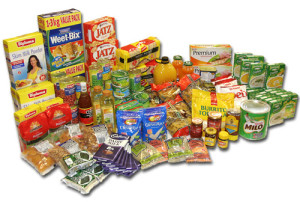The Diet of Americans almost makes over the Processed, packaged foods.
Most processed foods contain salts, sweeteners, colorings, factory-created fats, artificial flavors, chemicals that alter texture, and preservatives. Processed foods are often stripped of nutrients designed by nature to protect your heart, such as soluble fiber, antioxidants, and good fats. Combine that with additives, and the recipe would be disastrous.
Below are the big four ingredients in processed foods one has to look over:
Trans Facts
Tran’s fats are in moist bakery muffins and crispy crackers, microwave popcorn and fast-food French fries. Trans fats are worse to your heart than saturated fats because they boost the levels of bad LDL cholesterol and decrease good HDL cholesterol. That’s double trouble for your arteries. And unlike saturated fats, Tran’s fats also raise your levels of artery-clogging lipoprotein and triglycerides.

Replacing trans fats with good fats could reduce heart attack risk by 53 percent.
Refined Grains
Choosing refined grains such as white bread, rolls, sugary low-fiber cereal, white rice, or white pasta over whole grains can increase heart attack risk by up to 30 percent. Often, they’re just the same old refined stuff that raises risk for high cholesterol, high blood pressure, heart attacks, insulin resistance, diabetes, and belly fat.
At least seven major studies show that women and men who eat more whole grains have 20 to 30 percent less heart disease. In contrast, those who opt for refined grains have more heart attacks, insulin resistance, and high blood pressure.
Salt
Three-quarters of the sodium in our diets isn’t from the saltshaker. It’s hidden in processed foods, such as canned vegetables and soups, condiments like soy sauce and Worcestershire sauce, fast-food burgers (and fries, of course), and cured or preserved meats like bacon, ham, and deli turkey.
Some sodium occurs naturally in unprocessed edibles, including milk, beets, celery, even some drinking water. And that’s a good thing: Sodium is necessary for life. It helps regulate blood pressure, maintains the body’s fluid balance, transmits nerve impulses, makes muscles — including your heart — contract, and keeps your senses of taste, smell, and touch working properly. You need a little every day to replace what’s lost to sweat, tears, and other excretions.
What happens when you eat more salt than your body needs? Your body retains fluid simply to dilute the extra sodium in your bloodstream. This raises blood volume, forcing your heart to work harder; at the same time, it makes veins and arteries constrict. The combination raises blood pressure.
High-Fructose Corn Syrup
Compared to traditional sweeteners, high-fructose corn syrup costs less to make, is sweeter to the taste, and mixes more easily with other ingredients. Today, we consume nearly 63 pounds of it per person per year in drinks and sweets, as well as in other products. High-fructose corn syrup is in many frozen foods. It gives bread an inviting, brown color and soft texture, so it’s also in whole-wheat bread, hamburger buns, and English muffins. It is in beer, bacon, spaghetti sauce, soft drinks, and even ketchup.
Research is beginning to suggest that this liquid sweetener may upset the human metabolism, raising the risk for heart disease and diabetes. Researchers say that high-fructose corn syrup’s chemical structure encourages overeating. It also seems to force the liver to pump more heart-threatening triglycerides into the bloodstream. In addition, fructose may zap your body’s reserves of chromium, a mineral important for healthy levels of cholesterol, insulin, and blood sugar.
